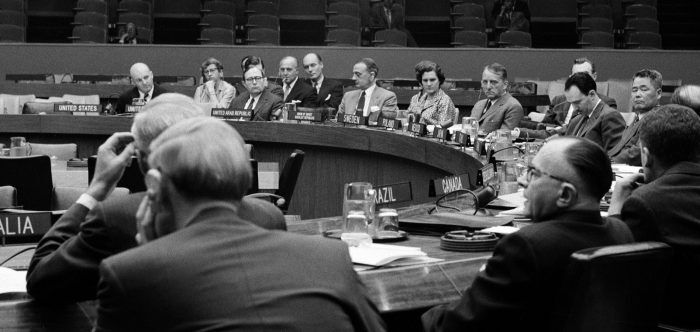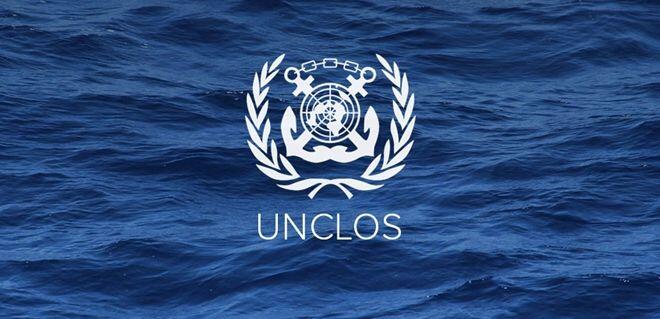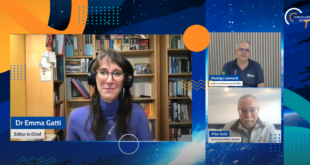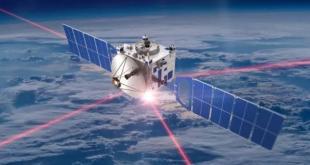By Dennis O’Brien

The new Working Group on Outer Space Resources held its first meetings during the recent session of the Legal Subcommittee (LSC) of the United Nations Committee on the Peaceful Uses of Outer Space (COPUOS). It will continue to meet during next month’s session of the full COPUOS. But what are the most contentious issues facing the Working Group, and what outcome can we expect from this year’s meetings?
-
The need for a new international agreement
When COPUOS created the Working Group last year, it gave the Group a five-year mandate to gather information, study the current legal framework, and “assess the benefits of further development of a framework for such activities, including by way of additional international governance instruments.” (emphasis added) This immediately raises the first point of contention: Does humanity need additional international governance instruments (agreements/treaties) for peaceful, sustainable activity in outer space? There are some countries and private entities who contend that the current international framework, anchored by the Outer Space Treaty (OST) of 1967, is adequate because it already guarantees free access to space resources by all countries. National laws can be (or have been) enacted to authorize such activity, and any needed coordination between countries can be achieved by ad hoc operating agreements among nations engaging in a common endeavour, such as the Artemis Accords. Any further international regulation, they claim, would be unnecessary, burdensome, and would likely inhibit rather than promote sustainable space resource activity. Those holding this view can generally be described as “nationalists”.
The opposing view is that the Outer Space Treaty is unable to address the impending expansion of space resource activity, that key terms such as “free access”, “appropriation”, and “due regard” are too vague and will allow powerful and technologically advanced countries to dominate the development/exploitation of space resources, much as they did on Earth five centuries ago. They contend this is contrary to Article I of the OST:
The exploration and use of outer space, including the moon and other celestial bodies, shall be carried out for the benefit and in the interests of all countries, irrespective of their degree of economic or scientific development, and shall be the province of all mankind.
Does humanity need additional international governance instruments (agreements/treaties) for peaceful, sustainable activity in outer space?
Those holding this view can generally be described as “internationalists”. This group has two subdivisions. Some want to create a new international authority, like the one in the United Nations Convention on the Law of the Seas (CLOS), that must pre-approve any space resource activity, while others believe that a new international agreement that addresses perceived gaps in space law – governance without a new government – would be adequate.
All decisions of COPUOS and its subdivisions are made by consensus. It is extremely unlikely that its member states will ever agree to a new international authority that must pre-approve resource activity. It is precisely this concern that has kept the Moon Treaty from widespread adoption. The Moon Treaty uses the phrase “common heritage of mankind” when talking about resources, the same phrase used in the CLOS to support its international authority. Only 18 countries have ratified it, a strong indication that any agreement that would create or even envision such an authority will not achieve consensus in the foreseeable future. But the member states might achieve consensus in clarifying the OST’s vagueness concerning outer space resources. On what topics is consensus most likely?
-
The marketability of outer space resources
There is general agreement that the Moon and other celestial bodies cannot be “owned” by any country or private entity. Article II of the OST is clear on that:
Outer space, including the moon and other celestial bodies, is not subject to national appropriation by claim of sovereignty, by means of use or occupation, or by any other means.
What is not clear is the status of any resources that are mined or collected, i.e., that are removed from “in place” (in situ). Some countries (e.g., the United States, Luxembourg) have enacted national laws that grant their private nationals ownership of any resources they remove from in place. Even the Moon Treaty seems to allow such ownership in its limited definition of what cannot be owned:
Article 11
- Neither the surface nor the subsurface of the moon, nor any part thereof or natural resources in place, shall become property of any State, international intergovernmental or non- governmental organization, national organization or non-governmental entity, or of any natural person. (emphasis added)
Since the internationalists generally favour the Moon Treaty, the member states will likely reach a consensus on an agreement that any outer space resource that is removed from in place becomes the property of whatever entity removes it, subject to their national laws.
-
Sharing outer space resources
Sharing the benefits of the exploration and use of outer space is a broad topic with many moral and social implications. Groups such as the Benefit Sharing Project of the Moon Village Association are doing a comprehensive analysis of how that might best happen. This article will focus on the issue before the COPUOS Working Group: How can a new international agreement prevent monopolization and enhance the sharing of outer space resources?
The most likely area where consensus might be reached is a clarification of the OST’s Article II prohibition against “appropriation”. Nobel Prize-winning economist Elinor Ostrom, who co-founded the International Association for the Study of the Commons, uses the concept of “exclusion” to distinguish private resources from public, i.e., if you can exclude someone from the use of a resource, it is private. Applying this analysis to space resources, any country or entity can avoid a charge of appropriation (privatization) so long as their use/exploitation of a resource does not exclude others from accessing the same resource.
Humanity’s future as we leave the home planet is at stake, and we all deserve to be part of that process.
Article I of the OST states that “there shall be free access to all areas of celestial bodies.” To avoid exclusive outer space resource activity, any new international agreement could specify that “Access to resources shall be shared.” It could further specify that “Space resource activity shall be conducted in such a manner that others can safely access the same resource.” Such model language has been proposed by the Space Treaty Project.
Achieving consensus on sharing access to resources is possible. During recent conferences and workshops, supporters of the Artemis Accords have stated explicitly that its proposed “safety zones” would not be exclusion zones. Indeed, any other position would be an explicit violation of the prohibition against appropriation. Although the June meetings of the Working Group probably will not produce a draft of any future agreement, it may well produce a statement that supports such a concept.

-
Sharing information on the discovery of outer space resources
The issue of sharing information gained from outer space activities has already been the subject of its own article in SpaceWatch.Global “Confidential or Shared? The Discovery of Outer Space Resources by the Private Sector”, September 2022). Like the other issues, it is a product of vague language in the Outer Space Treaty:
Article XI
To promote international cooperation in the peaceful exploration and use of outer space, States Parties to the Treaty conducting activities in outer space, including the moon and other celestial bodies, agree to inform the Secretary-General of the United Nations as well as the public and the international scientific community, to the greatest extent feasible and practicable, of the nature, conduct, locations, and results of such activities.
This duty to inform applies to private nationals of member states as well as their governments:
Article VI
States Parties to the Treaty shall bear international responsibility for national activities in outer space, including the moon and other celestial bodies, whether such activities are carried on by governmental agencies or by non-governmental entities, and for assuring that national activities are carried out in conformity with the provisions outlined in the present Treaty.
The vague term is “results”. The Moon Treaty addresses this vagueness with specific language concerning resources:
Article 11
- To facilitate the establishment of the international regime referred to in paragraph 5 of this article, States Parties shall inform the Secretary-General of the United Nations as well as the public and the international scientific community, to the greatest extent feasible and practicable, of any natural resources they may discover on the moon.
Since the Moon Treaty is not yet widely adopted, this interpretation is not binding. Those who disagree contend that any discovery by a private entity is proprietary information that can be kept confidential, and that forcing its disclosure would be a wrongful taking of private property without compensation. Further, they say, forcing disclosure without compensation would remove any incentive for private entities to engage in resource exploration, as there would be no way to monetize or profit from the information and recover their investment/expenses. Some even say that it would make private activity in outer space financially unsustainable.
Achieving consensus on sharing access to resources is possible
The earlier article explores the issue in greater detail and offers solutions to the apparent impasse. For purposes of this article, it is enough to say that it is highly unlikely that consensus will be achieved at this year’s meetings on this issue, though it is almost certain that the issue of sharing information concerning outer space resources will remain within the scope of the Working Group’s efforts.
-
Other issues
Other issues may fall within the scope of the Working Group. They will almost certainly include the definition of resources (materials? the land itself? solar energy?). Protecting areas of scientific interest is already in the Outer Space Treaty; adding protection for historic/cultural sites (long advocated by For All Moonkind) is so likely that it has been called the “low-hanging fruit” of issues ripe for international agreement. There are also peripheral issues, such as standards and recommended practices (e.g., use of designated landing sites) and dispute resolution. It is not clear if the Working Group will extend its scope to those.
There are also issues that at first appear unrelated to resources, such as the rights of individuals (e.g., asylum) and of settlements (e.g., self-governance). Yet there are large groups and organizations who will oppose any international agreement on the use of outer space if these issues are not addressed. It would not be surprising if the Working Group’s final report recommended that “Nothing in this [new international] Agreement shall prejudice the rights of individuals or settlements under customary international law.”
It will be interesting to see what the Working Group’s report to the full COPUOS next month will contain. Since their mandate extends four more years, it is very unlikely that they will achieve consensus at this time on all the points of contention discussed here. But they might well achieve consensus on the scope of topics they will consider and a process for doing so. They might also summarize the positions of member states on unresolved issues, e.g., “The delegation from __________ expressed the opinion that . . ..” This has been done in reports issued by COPUOS following the prior annual meeting.
The worst outcome would be a decision not to issue an interim report at all, under the principle that nothing is decided until everything is decided. But that is unlikely, as all COPUOS committees and working groups normally issue reports after their annual meetings to document work that has been done and progress that has been made so as to move the conversation/negotiations forward. We can only hope that this year’s report will contain as much information as possible. Though there are some who like to keep such discussions secret, these issues are too important to be decided behind closed doors. Humanity’s future as we leave the home planet is at stake, and we all deserve to be part of that process.

Dennis O’Brien is a lawyer and former member of the NASA – UC Law Research Project in San Francisco. He currently sits on the Adaptive Governance Working Group of the Moon Village Association and the Space Law Committee of Space Renaissance International. The views expressed here are his own and not necessarily those of either organization or its members.





